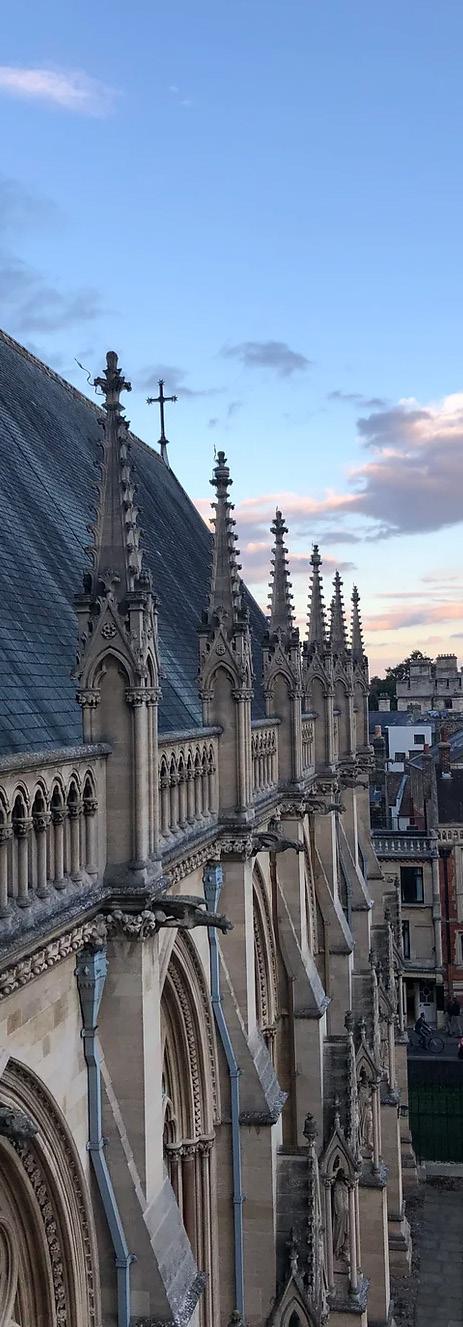Young Researchers Program
AN INTRODUCTION TO BIOTECHNOLOGY
SUMMER 2025



AN INTRODUCTION TO BIOTECHNOLOGY
SUMMER 2025


Students interested in learning more about the world of biotechnology will work alongside University of Cambridge academics to develop reasearch skills and evaluate trends in a rapidly evolving scientific field. Through weekly Zoom meetings, students will be introduced to the basics of biotechnology and explore academic literature addressing the science, law, policy and ethics of biotechnological advances. Tutorial sessions with a mentor will be held to further explore lecture material and related questions. Midway through the program, students will select a narrowed research topic and receive support to build an evaluative piece of work with the aim of submitting to a high school-oriented journal.





40+ hours of instruction from Cambridge academics
Hear directly from top scientists and other leaders of the biotechnology industry
Learn how to carry out academic research and write at the university level
Work alongside students from around the world
Produce a piece of evaluative writing with support & guidance
Dates: July 8th - August 31st, 2025
Location: Online (Zoom), optional campus visit in August
Time commitment: ~5 hours of Zoom sessions/week + independent work
Schedule: TBC
Lecturers: Dr. Stuart Hogarth, Dr. Dushanth Seevaratnam, Dr. Calum Nicholson, Sally Butler, Dr. Magda Nowinska
Guest Speakers: Dr. Roxine Staats, Dr. Ryan Geiser, Dr. Craig Russell, Dr. Max Jakobs, Dr. Afnan Azizi, Mike Lemonick + more to be announced
Assignments: Weekly readings, short response assignments, evaluative research paper and presentation




Students will build a strong foundation in the science, policy, law, and ethics of biotechnological advances. They will dedicate approximately 5 hours per week attending lectures delivered by Cambridge academics. Addtional small group tutorial meetings will be an opportunity for students to discuss assigned readings, ask questions about challenging concepts, and work on the process of academic research and writing.
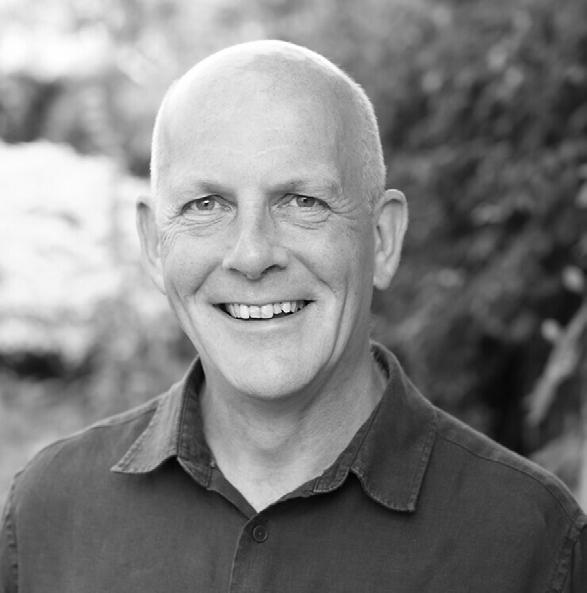
Dr. Hogarth is a Lecturer in Sociology of Science and Technology at the University of Cambridge. His work focuses on biomedical innovation and his research has investigated a diverse range of emergent biotechnologies, such as stem cell therapies and synthetic biology. His primary interest is the impact of genomic science on the diagnostics sector; he has published extensively on the political economy of diagnostic innovation, with a particular focus on regulatory governance and intellectual property rights. He has produced policy reports for the European Commission, Health Canada, and the UK Human Genetics Commission. Dr. Hogarth will introduce students to regulatory regimes and healthcare systems relevant to the biotechnology landscape, as well as help them to understand the structure and implications of a rapidly expanding bioeconomy from a policy, legal, and ethical angle.
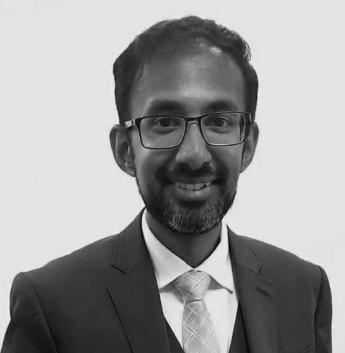
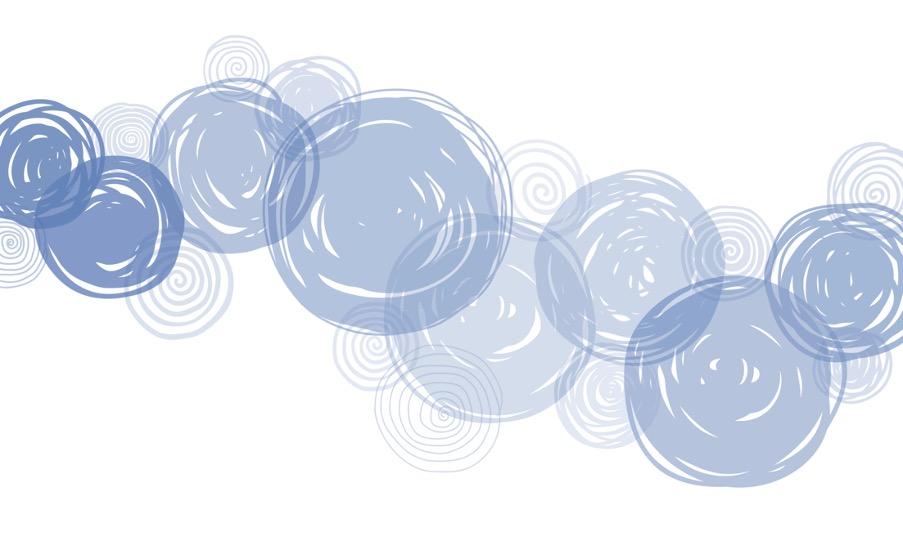
Dr. Seevaratnam holds a PhD in Chemical Engineering and Biotechnology from the University of Cambridge, where he currently works as a Postdoctoral Research Associate in Cambridge’s Centre for Infectious Diseases. Specialising in the development of low-cost rapid diagnostics for detection of COVID-19, dengue, and leptospirosis in low & middle income countries, Dr. Seevaratnam has deployed his biotechnology throughout Southeast Asia. He has also designed and developed polymer-based nanoparticles for tissue engineering, and for the delivery of chemotherapeutic drugs and genetic material as a Research Associate at Harvard Medical School. Dr. Seevaratnam will deliver lectures on the science underpinning cutting edge biotechnology, assist students with their independent research in tutorials, and elaborate on his lab-based research throughout summer sessions.




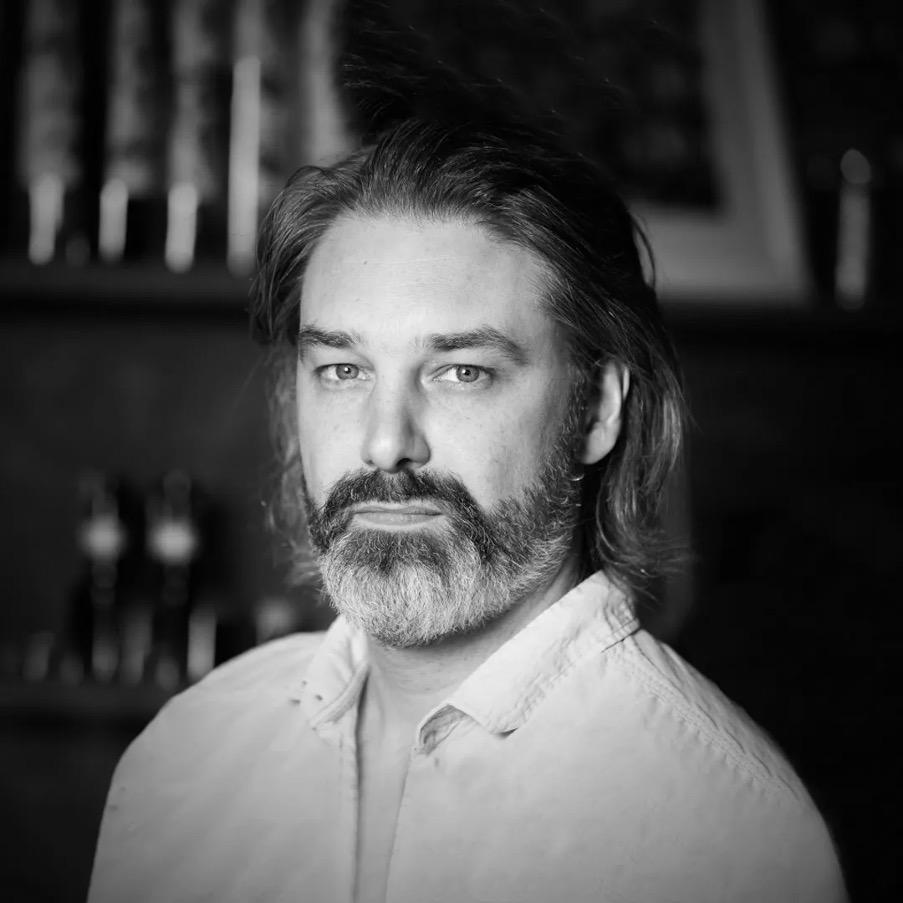
Dr. Nicholson holds an undergraduate degree in Social Anthropology from the University of Cambridge, a Masters in Migration Studies from the University of Oxford, and a PhD in Human Geography. He is a former visiting fellow at the University of Oxford, has served as a researcher in the British Parliament, and currently teaches courses on international development, international migration and the impact of social media at the University of Cambridge. He also writes and speaks on a wide range of social, political and cultural issues for various outlets, including for The Economic Standard, The New Humanist, and the Austrian Economics Center in Vienna. Dr. Nicholson will be delivering lectures on research methodology and academic writing, as well as helping students to develop the writing component of their indpendent work
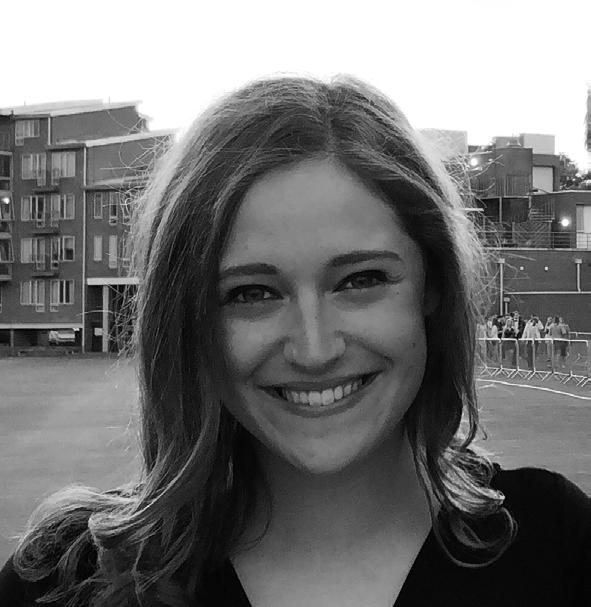
Sally holds an undergraduate degree in English Literature from Princeton University, where she also pursued a certificate in Global Health & Health Policy. She then went on to study pre-medical sciences at Columbia University before earning her Master of Philosophy in Health, Medicine, and Society at the University of Cambridge. Sally has formerly worked as a Research Associate at the University of Cambridge, producing work for the UK National Screening Committee. She is particularly interested in science literacy and introducing young students to the world of biotechnology. Sally will teach students some of the basic science underpinning biotechnological advances, as well as introduce students to the ethical dimensions of employing science to improve human health. Sally will be guiding students through the independent writing process in tutorial sessions throughout the program.

Magda holds both bachelor’s and master’s degrees in Chemistry from Imperial College London. After completing her undergraduate studies, she transitioned to the consulting world for a year before returning to science and academia in 2020. Currently, Magda is completing her PhD in Chemistry at the University of Cambridge as part of the Vendruscolo Lab. Working from the Centre for Misfolding Diseases, Magda’s research looks at the role that alpha-synuclein aggregates play in Parkinson’s disease. Alongside her PhD, she consults for WaveBreak Therapeutics, a drug discovery company geared toward deveolping medicines for the treatment of major neurodegenerative diseases Magda will be lecturing on lab techniques with a special emphasis on the ways in which technology impacts basic scientific research. She will also help guide students through the independent research process throughout the program.



Students will hear from a range of stakeholders in the field of biotechnology throughout the program. Guest speakers will discuss their research at Cambridge, as well as the ways in which they are currently shaping the world of biotechnology. At the forefront of science, business, education, and policy related to biotechnology, speakers will provide insight into prospective career paths and answer any related questions that students may have.
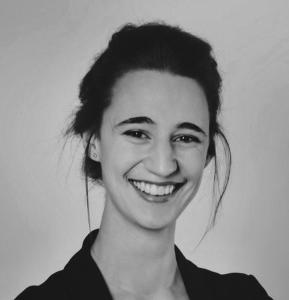
Dr. Staats holds a PhD in Chemistry from the University of Cambridge. Dr. Staats’ research at Cambridge focused on drug design and therapeutic intervention for neurodegenerative diseases such as Alzheimer’s and Parkinson’s. Upon graduating, Dr. Staats moved into a role as Scientist at Wren Therapeutics Ltd., followed by a role as Senior Scientist at STORM Therapeutics. She presently heads a team of researchers working in small-molecule drug discovery as applied to RNA modification for oncology intervention. Dr. Staats will talk to students about her path as a researcher and scientist in the drug discovery space.
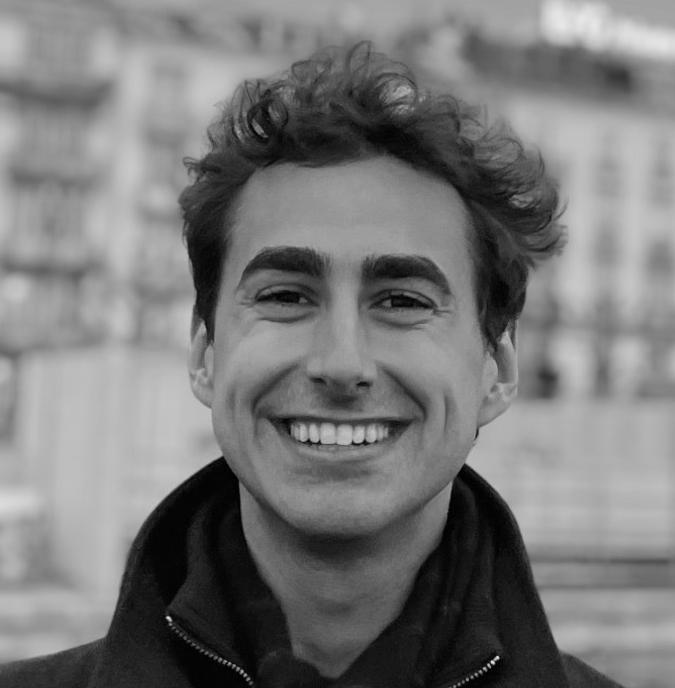
Dr. Geiser completed his PhD in Biophysical Chemistry at the University of Cambridge. A former Gates Scholar, Dr. Geiser worked out of the Centre for Misfolding Diseases at Cambridge, where his research looked at repurposing drugs to treat Alzheimer’s disease. After a year in investment banking at Lazard, Dr. Geiser co-founded Axiom Therapeutics, a biotechnology company with a foundational model that predicts covalent drug interactions with cancer-causing proteins. As CEO, Dr. Geiser works with a range of biotech companies, academic labs and scientists, and commercial experts.

Dr. Jakobs holds a PhD in Biological Sciences from the University of Cambridge. Upon graduating, he co-founded DeepMirror, a biotech company that specialises in artificial intelligence, data science, biomedicine, and image analysis. In his role as Co-Founder and CEO of DeepMirror, Dr. Jakobs leads a team of experts at the interface of biology, physics, and machine learning as they develop bespoke software for quantitative biomedical data analysis workflows using AI-based cloud technologies. He will speak to students about the unique biotech startup world that is Cambridge, as well as his path from lab researcher to biotech startup CEO.







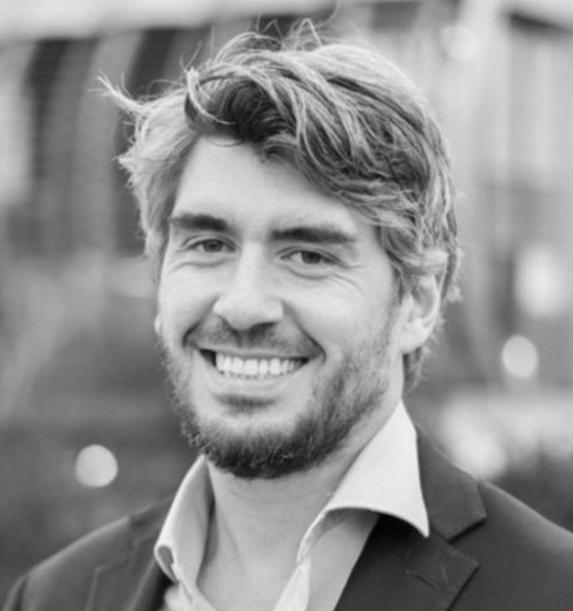
Dr. Russell holds a PhD in Engineering from the University of Cambridge, where he was part of the Laser Analytics Group. Upon completing his PhD, Dr. Russell spent five years working with the European Bioinformatics Institute (EBI) as a Data Scientist and AI Engineer, advising on computer vision, machine learning, and transcriptomics. More recently, Dr. Russell joined clinical-stage biotechnology company Recursion Pharmaceuticals as a Senior Machine Learning Scientist. In his new role, Dr. Russell focuses on mapping and decoding biology by integrating technological innovations with the aim of simulating drug discovery without a wet lab.
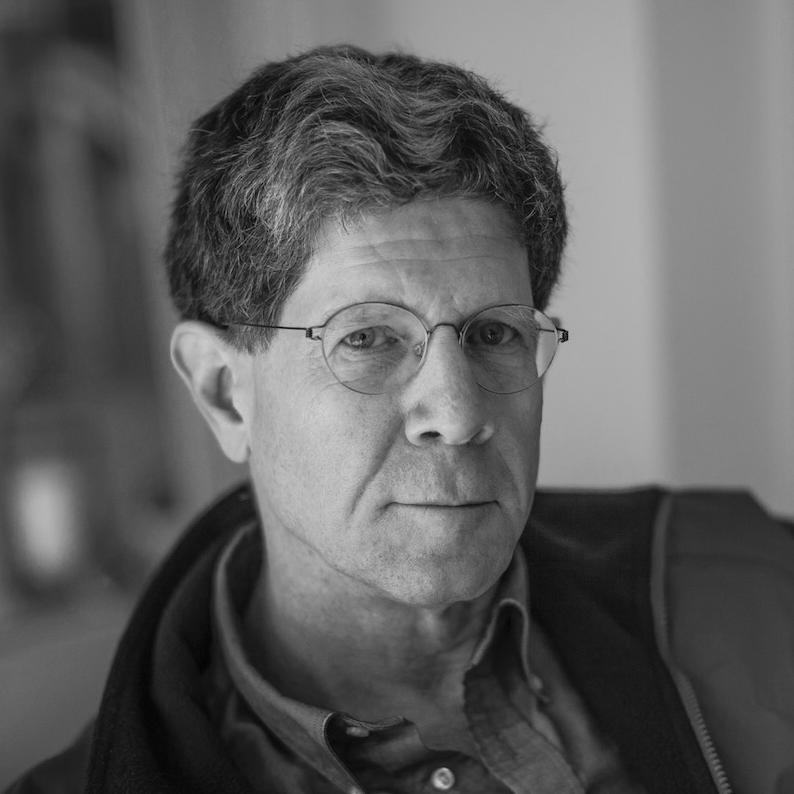
Michael D. Lemonick is a science journalist and author who has written for Time, Scientific American, National Geographic, The New Yorker and the Washington Post. He has also written four books on astronomical topics and has taught at Princeton University for the past decade. His primary teachings at Princeton are connected to the Program in Journalism, wherein he teaches an oversubscribed course called ‘Writing about Science’. This course teaches students how to write about research in STEM fields with clarity and a bit of flair.
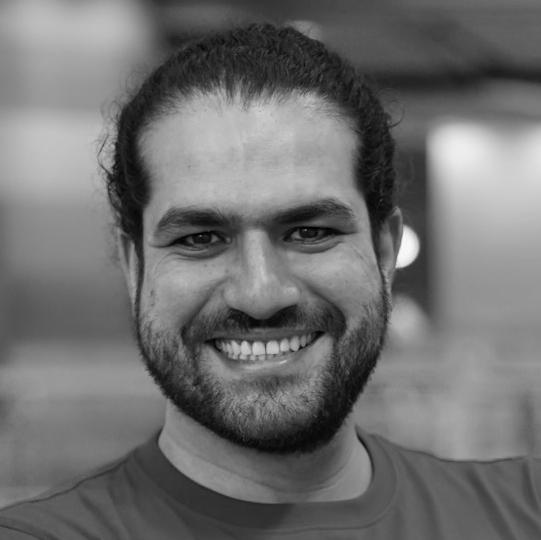
Dr. Afnan Azizi
Dr. Azizi completed his PhD in Developmental Biology at the University of Cambridge as a part of the Wellcome Trust PhD Programme in Developmental Mechanisms. He used cutting-edge microscopy techniques to answer fundamental questions about how the vertebrate retina is formed. He is now a postdoctoral fellow at The Francis Crick Institute in London where he uses 3D microscopy, single cell transcriptomics, and brain organoids to reveal how the human brain is formed at the embryonic stage and why it is so different from that of other vertebrates.






Students selected for the YRP are required to complete an independent research project. Under the guidance of leading academics, students will learn to read and analyse academic literature, as well as craft clear, concise, and persuasive narrative. Each student will select a topic of interest presented in lecture and build a related piece of analytical writing. Some students use the opportunity to structure a school-related research project, such as the IB Extended Essay, A Level EPQ, or AP Research investigation. Extremely driven students submit their work for publication in a high school-oriented journal.
• Applications of microRNA in cancer diagnostics
• Regulation of emerging molecular diagnostics
• Regulatory pathways of neurodevelopment
• Impact of AI on medical imaging techniques
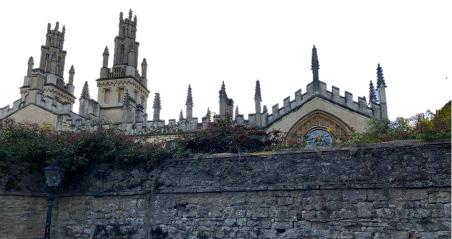






‘The

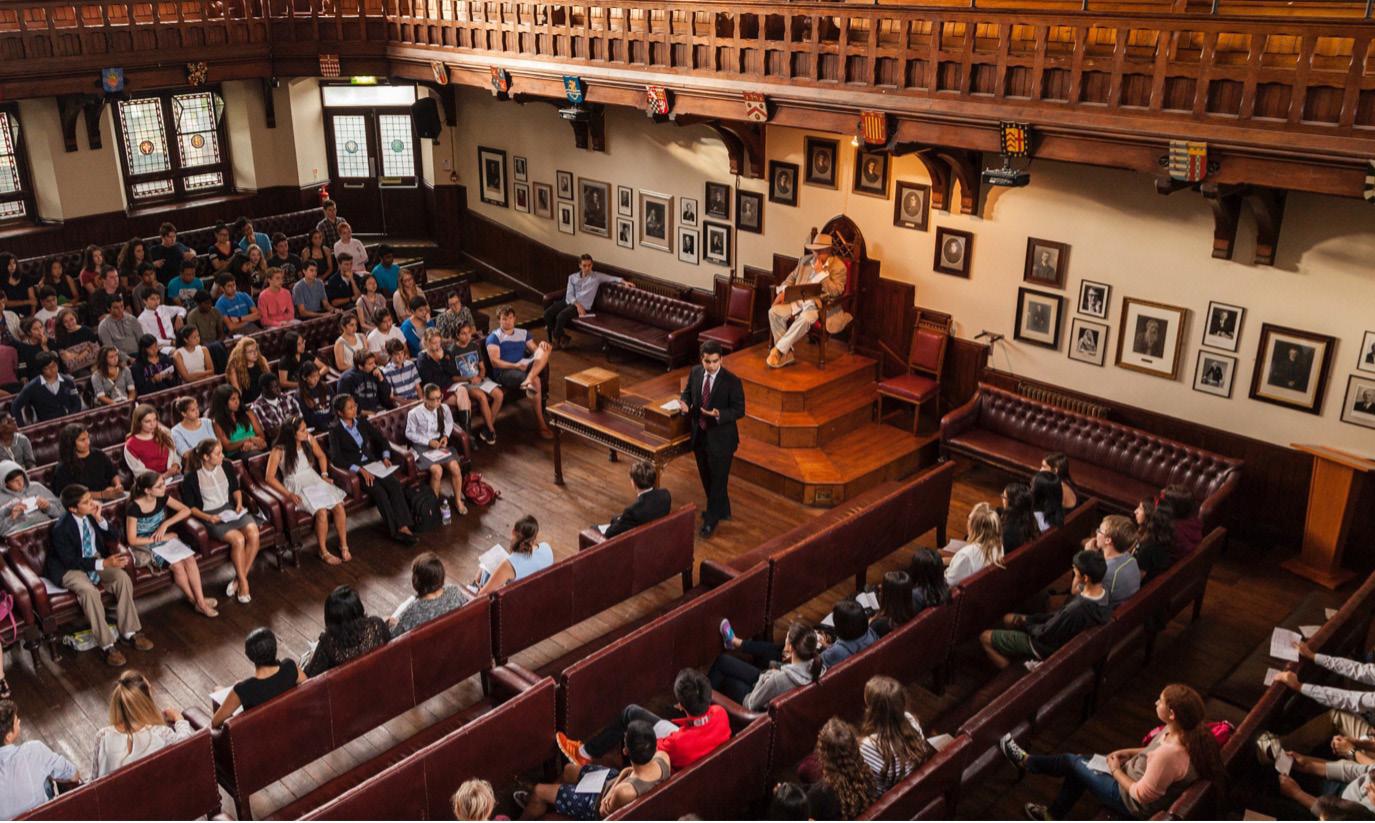
The YRP is partnering once again this summer with the Cambridge Union to introduce students to the craft of debate. Referred to in Cambridge simply as ‘The Union’, the debate society has hosted such influential figures as Bill Gates, Stephen Hawking and the current Dalai Lama. As the longest continually-operating debate society in the world, The Union permits students to engage constructively with the people and ideas that shape our world. The YRP similarly beckons students to reach beyond lab-based natural science training to consider the impact that advances in biotechnology have on society. As such, the program incorporates several lectures exploring ethical topics in biotechnology; students will learn how to think critically about these ideas and engage in related thoughtful and respectful dialogue.

Be a part of centuries-old tradition in Cambridge

Debate the ethics of cutting edge biotechnology
Learn about the social impact of innovative science

Learn to craft clear & compelling narrative

Collaborate with peers from around the world

Practice delivering strong arguments in front of peers






Register your interest in the program at https://www.ferrypatheducation.com/yrp2025 and a YRP advisor will be in touch.
A YRP advisor will be available to answer questions leading up to the application deadline in May. We are also hosting an online info session with past participants.
Submit an application
Both program and scholarship applications will open in April and be due shortly thereafter.
July 8th, 2025
YRP leadership will contact applicants about admission decisions.
The YRP 2025 welcome lecture will take place on July 8th.






Do I need to have a good understanding of biotechnology to participate in the program?
No. The program is designed to equip you with this knowledge! Students should be familiar with the basic scientific principles that are taught in high school natural science courses.
Will there be scholarships available?
Yes. Students will have the option to submit a supplemental application to be considered for a financial award.
Are all lectures and workshops online?
Yes. All teaching components of the course will occur over Zoom. Sessions will be recorded and made available to students if they miss a lecture or guest speaker session.
Will I have homework?
Yes. You will be sent weekly readings and should come to tutorials prepared to discuss ideas.
Is the visit to campus mandatory?
No. Students wishing to attend must be accompanied by a parent/guardian. We will tour scientific laboratories, the Cambridge Union debate chambers, and several colleges.
Will YRP help strengthen my university applications?
Past YRP students have received offers to Cambridge and other top UK & North American universities. A monthslong learning and research experience delivered by top Cambridge academics is an incredible experience and impressive accomplishment.
